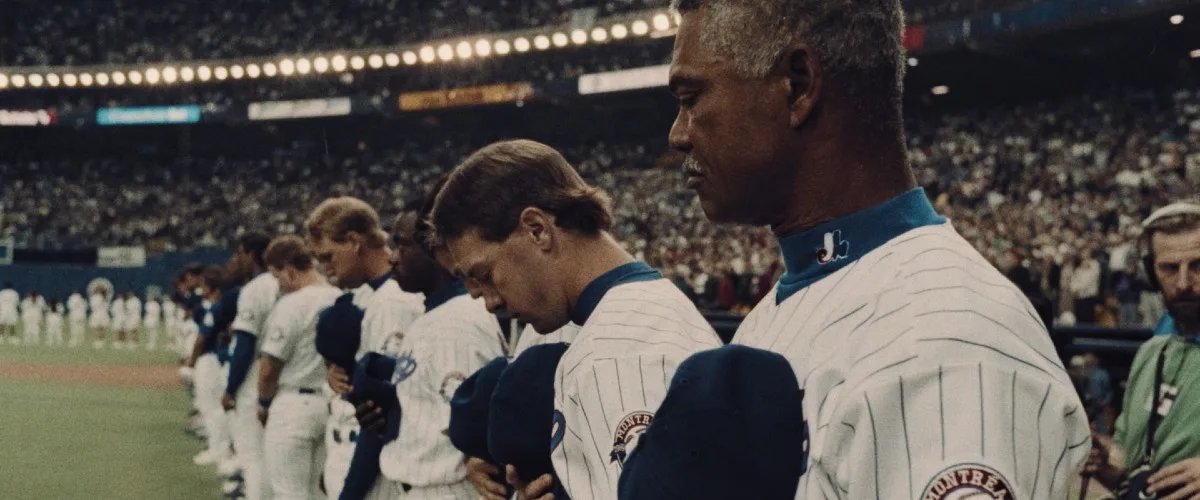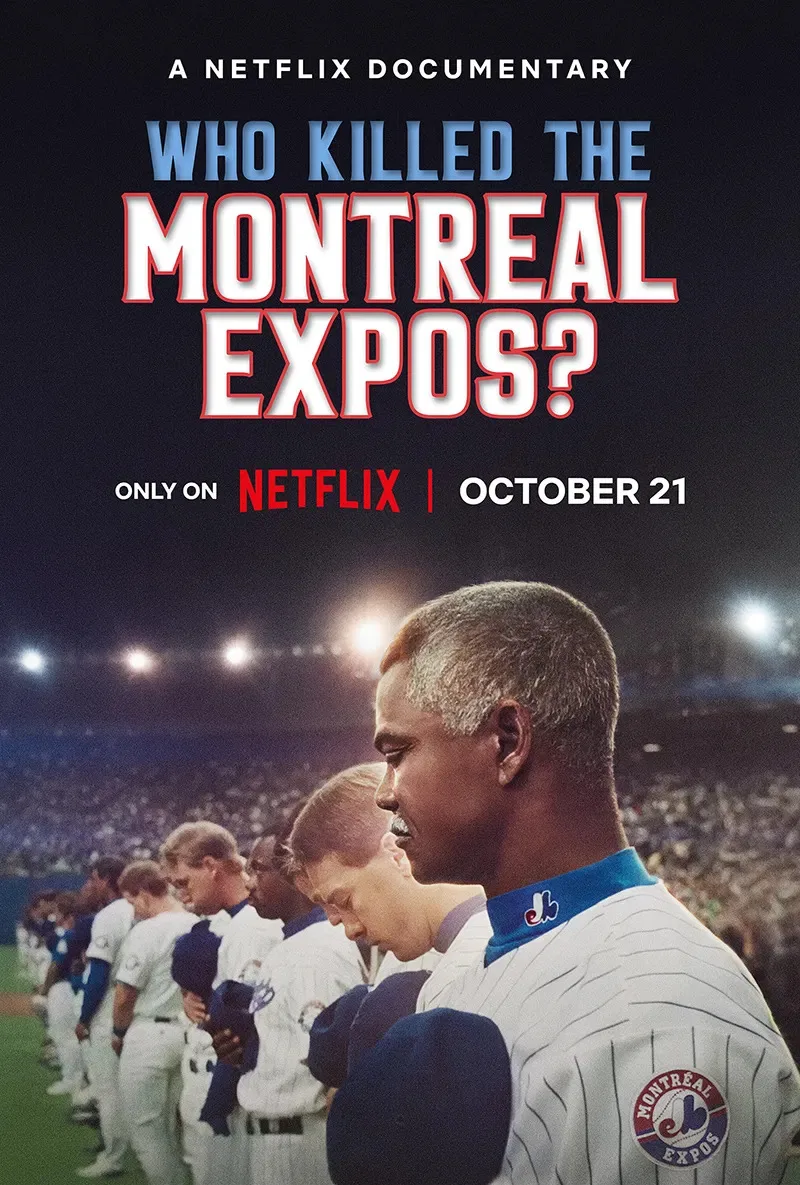I feel like I have a personal connection to the now-defunct Montreal Expos. I supervise tours at Wrigley Field for my day job, and not a week goes by that I don’t see someone sporting the stylized red E and blue B that form the team’s larger M logo. Each person who wears that logo is still heartbroken about the team that was ripped away from their city. I often assure them that one day baseball will return to Montreal while asking myself: Why did Major League Baseball abandon them? Jean-François Poisson’s Netflix documentary “Who Killed the Montreal Expos?”, which world premiered at Festival Nouveau Cinéma de Montréal, is a poignant and righteously angry film that attempts to answer that question.
Poisson’s approach isn’t too dissimilar from other films that’ve captured anguished fans still pondering how they lost their team. Like 30 for 30’s “The Band That Wouldn’t Die,” which tributed the Baltimore Colts Marching Band, or “Brooklyn Dodgers: Ghosts of Flatbush,” this film assembles the former owners, players, journalists supporters, and even Jean Simon-Bibeau, who was the team’s beloved mascot Youppi!, to bear their memories about the decline and collapse of the Expos. Poisson also adopts the whiplash timeline jumping favored by “The Last Dance,” zooming us through this story not chronologically, but guided by the magnitude of the event. The effect is a film that, at times, can feel rushed but as knowingly convoluted as the mystery it attempts to solve.
Ever since Charles Bronfman founded MLB’s first professional international team, the Expos, in 1968, they faced an uphill climb to field a winning team. Those difficulties mounted in the 1980s as player salaries rose, television contracts exploded, and the value of the Canadian dollar plummeted, making it tough to financially compete with the rest of baseball. Unable to meet fiscal expectations, Bronfman entrusted the team’s president Claude Brochu to sell the franchise with the hope of keeping the Expos in Montreal.
To do so, Brochu thought of a novel idea not unlike the Chicago Cubs’s failed College of Coaches: He would form an investment group composed of 14 Canadian corporations with baseball installing him as the primary decision maker, a choice that irked his co-owners. Nevertheless, by 1994, with Felipe Alou as manager and the emergence of stars like future hall of famers Pedro Martinez and Larry Walker, the Expos were the best team in baseball. That is, until the strike abruptly dashed their World Series dreams.
While Poisson does find quite a few culprits, the business of baseball looms as the primary villain. The boardroom backstabbing that would occur between Brochu and the other owners; the failed fight for a publicly funded stadium; the arrival of new team owner Jeffrey Loria and his stepson David Samson, who turned out to be sharks, all feed into the complex web of how baseball is not only a numbers game on the field but also on the bank statement.
The gregarious Samson is an enthralling orator while the reporter Tom Verducci serves as a commendable referee, calmly guiding us through the written and unwritten rules of team ownership. Alou and former player Orlando Cabrera are equally frank about the shortcomings of those in power, with the latter describing the organization as “toxic.” Through these voices we’re granted a nearly complete picture of what exactly went wrong, a result that fulfills the basic function of the film.
Still, if “Who Killed the Montreal Expos?” has one shortcoming, it’s the length. The 90-minute documentary is too short. Poisson doesn’t cover how the Expos ended up playing at Olympic Stadium or how they played 22 games in 2002 in Puerto Rico. And while the film is consciously about the business of baseball, one wishes there was a bit more about the player side of the organization. For instance, for a time the Expos might’ve had the best minor league system in baseball. Their record of drafting players was nearly unparalleled. Along with developing Martinez and Walker, they drafted other future hall of famers like Andre Dawson, Gary Carter, Tim Raines, Randy Johnson, Vladimir Guerrero. How did that happen? We’re not privy to that information.
While “Who Killed the Montreal Expos?” is light on the actual baseball, it doesn’t forget the fans. The footage of the final Expos home game on September 29, 2004 leaves a lump in your throat. The images of fans and reporters crying sinks in your gut, making their still unbearable pain tangible. The fans in this film know that baseball is more than a pastime. It defines one’s time: memories with parents, moments with children, and long afternoons with friends. Baseball is life when it’s around and death when it’s gone. By the end of “Who Killed the Montreal Expos,” you come to hope that one day spring will smile kindly once more on those still still praying for the return of their darling team.




















